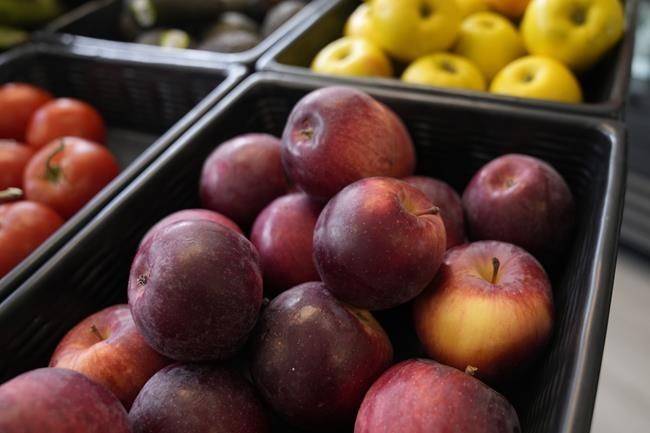MONTREAL — Quebec apple farmers are asking for government help to plant new varieties and modernize their orchards as they try to adapt to climate change and shifting consumer tastes.
Éric Rochon, president of the Quebec apple farmers association, said his group, the Producteurs de pommes du Québec, is asking Quebec's agriculture ministry for $30 million over six years.
"What we're asking for is a program that will help up plant new varieties because consumers know what they want," Rochon said in an interview.
Research done by his organization and other industry stakeholders has found that consumers want apples that are firmer and sweeter, which aren't frequently grown in Quebec.
"You have to understand that the new types of apple trees are much more productive. We want to put the new varieties that consumers want, we're talking about Ambrosia, Honeycrisp and Gala," Rochon said.
Gala apples couldn't be grown in the province 25 years ago, because the winters were too cold, he said. While the variety is sensitive to cold, he said the risk is easier for farmers to take on now.
Rochon said producers also want to modernize their orchards so that they're better adapted to the changing climate.
"This year, I'm in the Mirabel area, we must have had three or four tornado warnings, something that we didn't have before," he said. "Our orchards have to be adapted to withstand these new climates."
To do that, he said, better stakes and high quality mulch is necessary. Irrigation systems also need to be installed on new orchard plots.
Producers are asking for government support because of the length of time between planting new apple trees and the first harvest.
"If we decide to change a patch of apple trees tomorrow morning, I have to wait five years before the first harvest. That's why we're asking the government for this financial assistance," Rochon said.
Rochon said that he expects overall apple production to be down in Quebec this year, after a late frost in certain parts of the province caused some producers to lose a large percentage of their production.
"There was a relatively heavy frost during flowering, the majority of Quebec orchards were in full bloom and we had temperatures as low as -6, -7 degrees Celsius in some regions," he said.
Overall production could be down by between 18 per cent and 20 per cent, he said, because of the frost.
"You have to understand that frost is very local," he said, adding that certain producers didn't suffer any losses.
This report by The 91‘≠¥¥ Press was first published Sept. 3, 2023.
Coralie Laplante, The 91‘≠¥¥ Press



